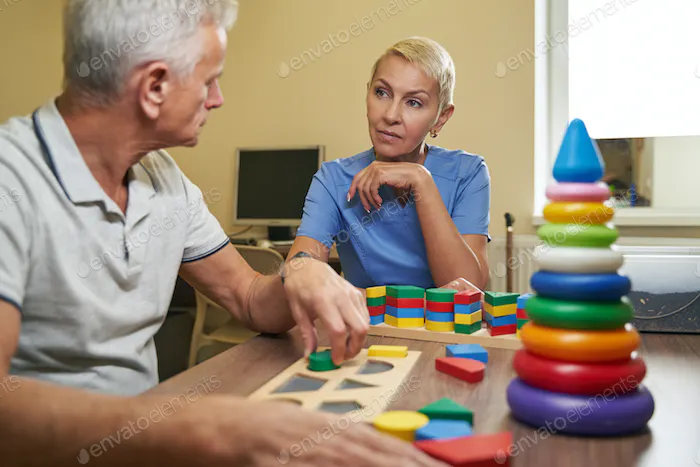Dr. Curtis Cripe on Helping Loved Ones Cope with Dementia
Coping with dementia, whether you're the one experiencing it or supporting a loved one, can be challenging. Dr. Curtis Cripe shares simple ways to provide comfort and understanding.
Patience is key
Dementia can make things confusing and frustrating. Being patient and giving more time for tasks and talks creates a helpful environment.
Maintain routine
Keeping things the same is comforting. Stick to regular routines because changes can be confusing for people with dementia. Dr. Curtis Cripe says that a familiar routine makes a dementia patient feel safe.
 |
Image
source: envato.com |
Use clear and simple language. Break down information into smaller, understandable bits. Maintain eye contact and be attentive to non-verbal cues to connect better.
Encourage independence
Even if someone has dementia, it's nice for them to feel independent. Let them join in on everyday activities as much as they can. According to Dr. Curtis Cripe, it helps them feel good about what they can do.
Create a safe environment.
Ensure the living space is safe and supportive. Remove hazards, label essential items, and consider installing safety features like handrails to prevent accidents.
Foster social connections
Encourage social interactions. Spending time with loved ones and friends or participating in social activities can bring joy and emotional support.
Engage in activities that boost memory.
Memory-related activities can be beneficial. Simple games, looking at old photos, or reminiscing can stimulate cognitive function and provide a sense of connection.
Seek professional help
Don't hesitate to consult healthcare professionals specializing in dementia care. These experts can provide valuable guidance, support, and resources tailored to individual needs.
Ensure the living space is safe and supportive. Remove hazards, label essential items, and consider installing safety features like handrails to prevent accidents.
Foster social connections
Encourage social interactions. Spending time with loved ones and friends or participating in social activities can bring joy and emotional support.
Engage in activities that boost memory.
Memory-related activities can be beneficial. Simple games, looking at old photos, or reminiscing can stimulate cognitive function and provide a sense of connection.
 |
Image
source: envato.com |
Don't hesitate to consult healthcare professionals specializing in dementia care. These experts can provide valuable guidance, support, and resources tailored to individual needs.
Join a support group.
Dr. Curtis Cripe shares that connecting with others living through similar experiences can be helpful. Support groups provide a platform to share insights, advice, and emotional support.
Helping a loved one cope with dementia requires compassion, patience, and adaptability. By incorporating these simple strategies into your caregiving routine, you contribute to creating a more supportive and comforting environment. Remember, you're not alone, and seeking assistance from healthcare professionals and support groups can make the journey more manageable for you and your loved one.
For more reads on brain health and other related topics, follow this page for brain development expert Dr. Curtis Cripe.
Helping a loved one cope with dementia requires compassion, patience, and adaptability. By incorporating these simple strategies into your caregiving routine, you contribute to creating a more supportive and comforting environment. Remember, you're not alone, and seeking assistance from healthcare professionals and support groups can make the journey more manageable for you and your loved one.
For more reads on brain health and other related topics, follow this page for brain development expert Dr. Curtis Cripe.